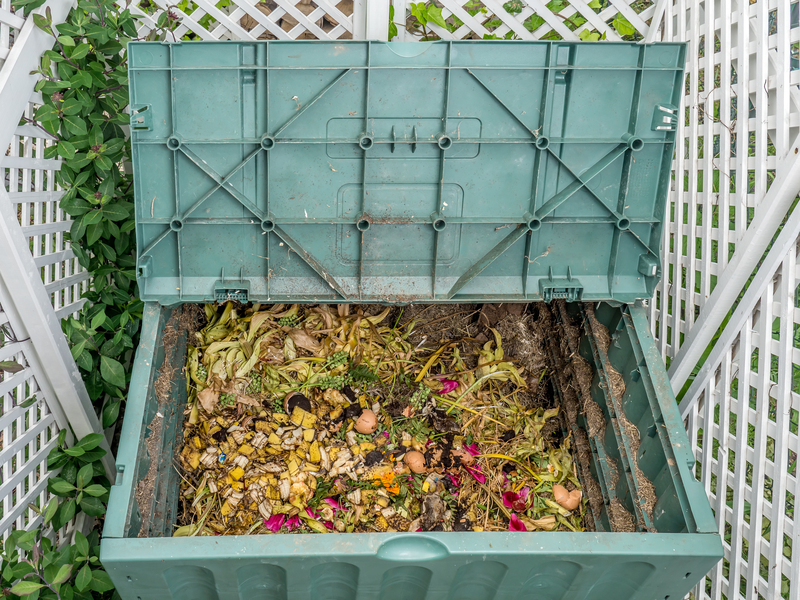Simple Actions for Environmentally Friendly PPE Waste Disposal
The global COVID-19 pandemic introduced a wave of essential practices, including the widespread use of Personal Protective Equipment (PPE)--such as masks, gloves, gowns, and face shields. While PPEs have served as vital barriers against infection, their increased use has created mounting environmental challenges. As responsible stewards of the planet, it's critical to adopt environmentally friendly PPE waste disposal habits. In this article, we present simple yet impactful actions to minimize your ecological footprint while safeguarding public health.

Why Proper PPE Waste Disposal Matters
Improper PPE disposal can have significant negative effects on the environment and human health. Here's why:
- PPE is often made from non-biodegradable plastics: Items like disposable masks and gloves can persist in landfills and marine environments for decades.
- PPE waste can threaten wildlife: Animals can become entangled in discarded masks or ingest scraps of gloves, causing injury or death.
- Microplastic pollution: As PPE items break down, they release microplastics into the earth and water systems, infiltrating food chains.
- Public health risks: Incorrectly disposed used PPE can expose sanitation workers and the public to infectious agents.
For these reasons, adopting sustainable PPE waste management practices is essential.
Understanding Types of PPE and Their Environmental Impact
- Masks and Respirators: Most disposable masks and N95 respirators are constructed from polypropylene, a type of plastic that doesn't decompose quickly.
- Disposable Gloves: These are usually made from nitrile, latex, or vinyl--with nitrile and vinyl being especially problematic for the environment.
- Face Shields and Goggles: Made from rigid plastics, these items are often categorized as mixed-material waste, making them harder to recycle.
- Gowns and Coveralls: Frequently designed for single-use, these garments are generally created from the same synthetic materials as masks.
Learning about your PPE's composition can help you choose environmentally safer disposal options.
Simple Actions You Can Take for Responsible PPE Disposal
1. Segregate Your PPE Waste
Never toss used PPE items with regular recyclables or compostables. Segregation is a crucial first step because contaminated PPE must be handled separately to avoid spreading pathogens.
- Have a dedicated, labeled bin for PPE in your home, office, store, or facility.
- Line PPE bins with a sturdy plastic bag and close them tightly when full.
- Avoid mixing PPE with other types of recyclable waste.
2. Choose Reusable PPE Where Possible
Not all situations require disposable PPE. Opting for reusable, washable masks and gowns reduces waste and is often more eco-friendly.
- Use cotton or fabric masks than can be washed and reused multiple times.
- Wash reusable PPE after every use as per guidelines to maintain their protective properties.
- If using gloves, prefer reusable options when appropriate (not suitable for medical settings, but possible for non-clinical use).
3. Educate and Encourage Proper Disposal in Your Community
Education is a powerful tool. By spreading awareness, you can help reduce improper PPE littering and promote eco-friendly disposal habits.
- Share information with family, friends, and co-workers about the environmental hazards of improper PPE disposal.
- Encourage business owners: Ask local shops and offices to set up PPE-specific waste bins.
- Organize or participate in local clean-up events focusing on PPE waste in parks, streets, and beaches.
4. Dispose of PPE Responsibly at Home and Work
Follow local health department guidelines on PPE waste disposal, which often recommend sealing used PPE in bags before disposal.
- Place used PPE in a bag, tie it securely, and deposit it in your general waste bin--not recycling.
- Wash your hands thoroughly after handling used PPE or touching waste bins.
- Avoid burning PPE, as it releases toxic compounds into the atmosphere.
5. Participate in PPE Recycling Programs
Some companies and organizations now offer PPE recycling services. While wide-scale PPE recycling is still in development, check if such programs are available in your area.
- Research local initiatives or municipal collection drives that accept used masks and gloves for recycling.
- Mail-back recycling: Several companies (like TerraCycle) offer prepaid collection boxes for PPE waste.
- If your workplace uses large amounts of PPE, work with recycling vendors to implement a tailored recycling plan.
6. Buy Sustainable PPE Products
Whenever possible, support companies that produce biodegradable or recyclable PPE. This small consumer decision can help drive industry-wide change.
- Look for masks made with sustainable fibers, such as bamboo or organic cotton.
- Opt for gloves designed from plant-based or biodegradable materials when the application permits.
- Support brands that actively contribute to closed-loop recycling or offer take-back programs.
Special Considerations for Healthcare and Industrial Sectors
Healthcare and industrial settings are major consumers of PPE, generating large volumes of specialized waste. Environmentally friendly PPE waste management in such settings requires:
- Adhering to regulatory guidelines for medical waste segregation.
- Investing in sustainable PPE alternatives and bulk recycling programs.
- Educating staff and contractors in safe handling and disposal protocols.
- Considering on-site sterilization and waste reduction technologies.
Facilities should collaborate with licensed biohazardous waste contractors to ensure compliance and minimize environmental harm.
How to Spot Greenwashing in PPE Products
With the surge in demand for sustainable products, some companies may exaggerate the eco-friendliness of their PPE. To avoid being misled:
- Check for third-party certifications (such as FSC, GOTS, or ASTM biodegradability standards).
- Scrutinize claims of 'biodegradable' or 'compostable'--they should specify industrial or home composting compatibility.
- Review the company's transparency about recycling programs or sustainability initiatives.
Future Solutions: Innovations in Eco-Friendly PPE Disposal
Ongoing research and technological advancements are shaping the future of responsible PPE disposal:
- Development of compostable masks and gloves that break down under natural conditions.
- Automated PPE collection systems in cities and institutions to streamline waste processing.
- Advanced recycling facilities capable of processing mixed-material PPE more efficiently.
- Increased use of digitized tracking to ensure PPE waste ends up in the correct streams.
By supporting these innovations and advocating for stricter policies, consumers and organizations can push for systemic improvements in eco-friendly PPE waste management.
Common Mistakes to Avoid When Disposing of PPE
- Tossing used PPE into recycling bins: Contaminated items can ruin batches of recyclable material.
- Littering masks and gloves in public spaces--this is a major source of pollution and urban blight.
- Burning PPE without proper filtration equipment, which can cause air pollution.
- Flushing masks or gloves down toilets--this leads to blockages and marine pollution.
- Handling used PPE without protective gloves or washing hands immediately after.

How Individuals Can Make a Lasting Difference
Adopting sustainable PPE disposal habits doesn't require huge changes. With little effort, everyone can contribute to a cleaner, healthier planet:
- Switch to reusable PPE when practical.
- Encourage local governments and businesses to implement proper PPE disposal protocols.
- Offer education and start conversations about the environmental impact of PPE with peers and online communities.
- Stay informed and advocate for sustainable product choices in your workplace or school.
Conclusion: Simple Steps Towards Sustainable PPE Waste Management
Personal Protective Equipment is indispensable to public health, but its environmental cost continues to grow. By taking simple actions for environmentally friendly PPE waste disposal, each individual has the power to mitigate pollution, protect wildlife, and reduce health risks. Remember to segregate, educate, recycle, and support sustainable PPE products and programs--your efforts add up to tangible change.
For more information about local PPE disposal regulations or recycling programs, consult your municipality or visit your health department's website. Together, we can ensure PPE keeps people safe without harming the planet.
- Segregate PPE waste properly
- Switch to reusable options where possible
- Participate in recycling or take-back programs
- Advocate and educate for eco-friendly disposal methods
- Support innovation in PPE materials and waste management
By following these simple, actionable tips, you'll play a key role in creating a sustainable, environmentally conscious future.